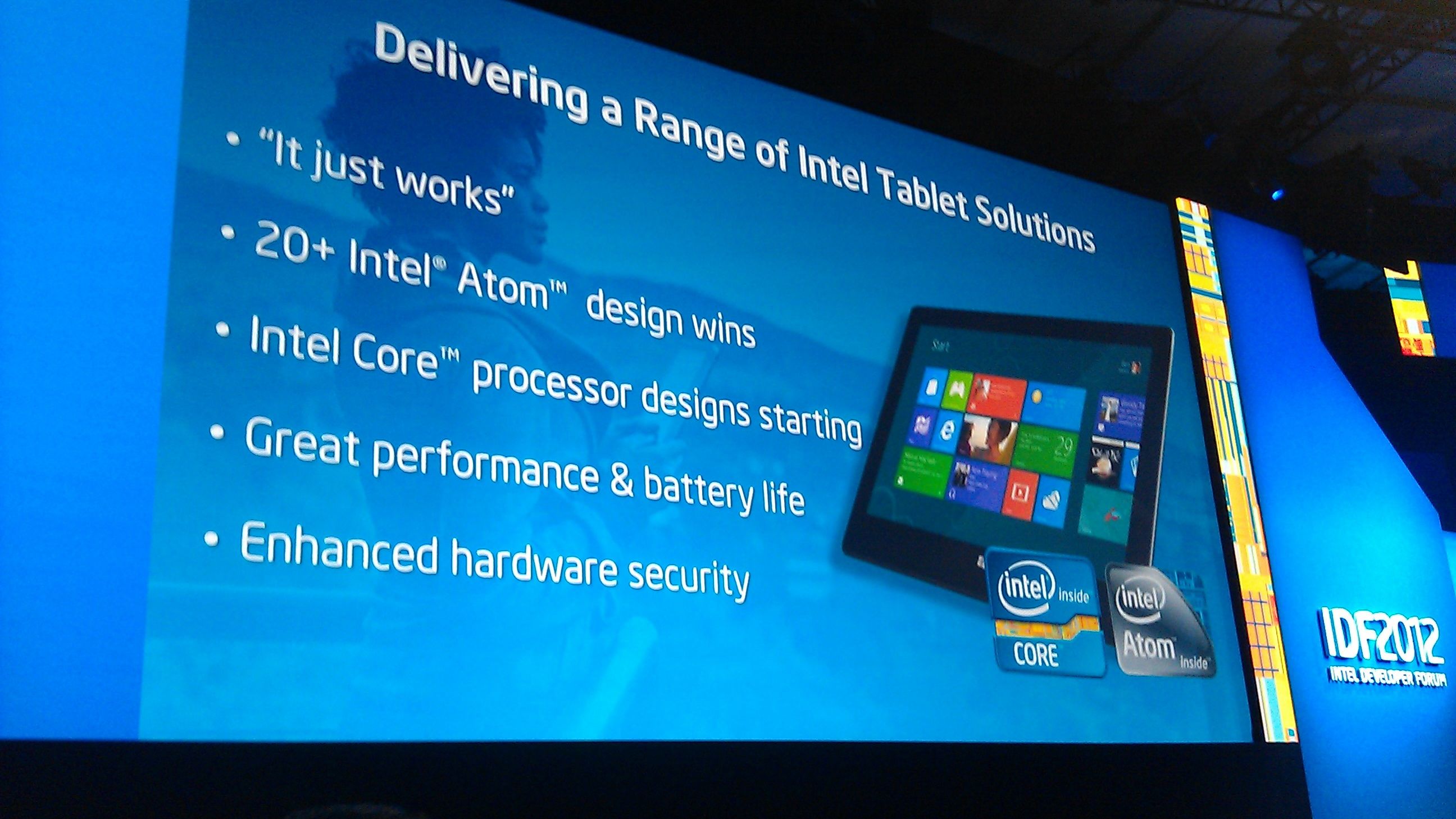Intel wants you to 'treat your PC like a human'
Intel introduces its own Siri-a-like for Ultrabooks

The biggest thing to come out of this morning's opening keynote at IDF 2012 was the evolution in the way we interact with our computers, interacting with them in a more human-like way.
Boiling that down, it means using the same varied ways we interact with each other and applying that to computing.
We touch, we talk and we gesture to each other "this is the evolution in computer interaction that Intel wants to help drive with next year's 4th Generation of Core architecture, code-named Haswell."
While that CPU itself is a while away, what we did see though was this notion of evolved interaction. The first real-world offering came from a company called Nuance, who is already on its 12th version of the Dragon voice recognition software.
Unleashing the 'Dragon'
Perlmutter and his demo-lacky, Craig, showed the results of a collaboration between Intel and Nuance on a new version of its Dragon software, paired with a current-gen Dell 13 XPS.
Permutter was keen to point out it wasn't a cloud-based system and "requires the high-performance of the CPU and computing capabilities inside."
Intel has worked with Nuance on this next version, available in beta in the fourth quarter of the year and says "the work with Nuance is predominantly tailoring the application, tuning the application.
Get daily insight, inspiration and deals in your inbox
Sign up for breaking news, reviews, opinion, top tech deals, and more.
Voice recognition is not a small, easy task. And we're working with them on future capabilities that we're not announcing today."
It was very much a Siri-like setup, with the operator first waking up the Dragon with a cheery "hello Dragon" and from there interacting with it to search through Google, tweet about what they were looking for and then finally playing some music.
It was all very seamless, unlike some of the other Lenovo tablet demos we were "treated" to.
Dragon responded quickly and accurately, even down to understanding complex song requests and playing musical genres rather than individual songs.
What wasn't made clear though was how this was going to be paired up with the next generation of Ultrabooks that will be coming next year.
The current top-of-the-line Dragon Premium software runs into the hundreds of pounds, but for this to be picked up by the mainstream market it's going to have to come pre-installed "without a huge premium attached" when you buy your Ultrabook.
But seeing how desperate Intel is to get the Ultrabook brand out there we wouldn't be surprised to see it footing much of the bill itself.
Perlmutter also demoed gesture recognition through a Kinect-like 3D camera from Creative and the SoftKinetic recognition software. It sat atop a laptop's panel, but he says that in a year or two 3D cameras will be integrated into the laptop itself, just like a traditional webcam is now.